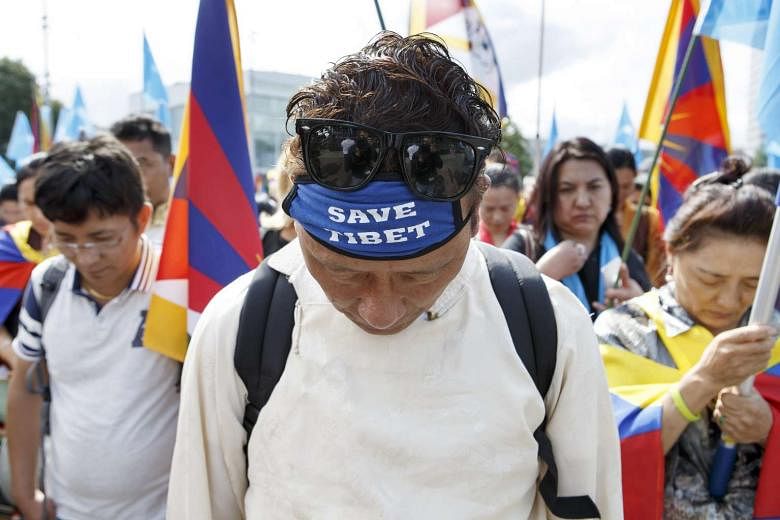BEIJING (Reuters) - China will cooperate with the United Nations Human Rights Council, a body it has had testy relations with over the years, and invite its representatives to visit the country as appropriate, the government said in a policy paper on Thursday (Sept 29).
President Xi Jinping's administration has tightened control over civil society, citing a need to boost security and stability, in what activists say is the most sweeping crackdown on dissent in decades, with dozens jailed.
China frequently faces censure at the UN rights body, and has refused to allow in some UN-appointed envoys. Others have complained that when they are allowed to visit the government interferes with their work and blocks access to interviewees.
China's latest National Human Rights Action Plan, which runs to 2020, promises that China "will cooperate with the Special Procedures of the United Nations Human Rights Council".
This includes "answering letters from it, inviting, as appropriate, representatives of the body to visit China, and continuing to recommend Chinese experts for posts in the Special Procedures", said the paper, released by the official Xinhua news agency.
"China will conduct exchanges and cooperation with the Office of the UN High Commissioner for Human Rights, and hold dialogues on human rights with relevant countries on the basis of equality and mutual respect," it added.
China will also offer developing countries assistance in the human rights field, the paper said.
China frequently says that it does not believe the issue of human rights should be politicised, and has for example rejected efforts by the United Nations to investigate alleged rights abuses in reclusive North Korea, which has close ties with China.
Reuters reported last year that Beijing was using intimidation tactics at the rights council, based in Geneva, to silence critics there.
China routinely rejects foreign criticism of its rights record, and says that guaranteeing things like the right to education and freedom from hunger, where it has been very successful, show its commitment to a more broader definition of human rights.
Particular opprobrium has been directed at China's treatment of ethnic minorities, especially in restive Tibet and Xinjiang.
The paper said China would put more efforts into prioritising the development of minority areas and protect their"lawful rights and interests". It did admit some problems, though. "The rule of law in safeguarding human rights needs to be further promoted and more efforts are required to realise higher levels of human rights protection," the paper said.

